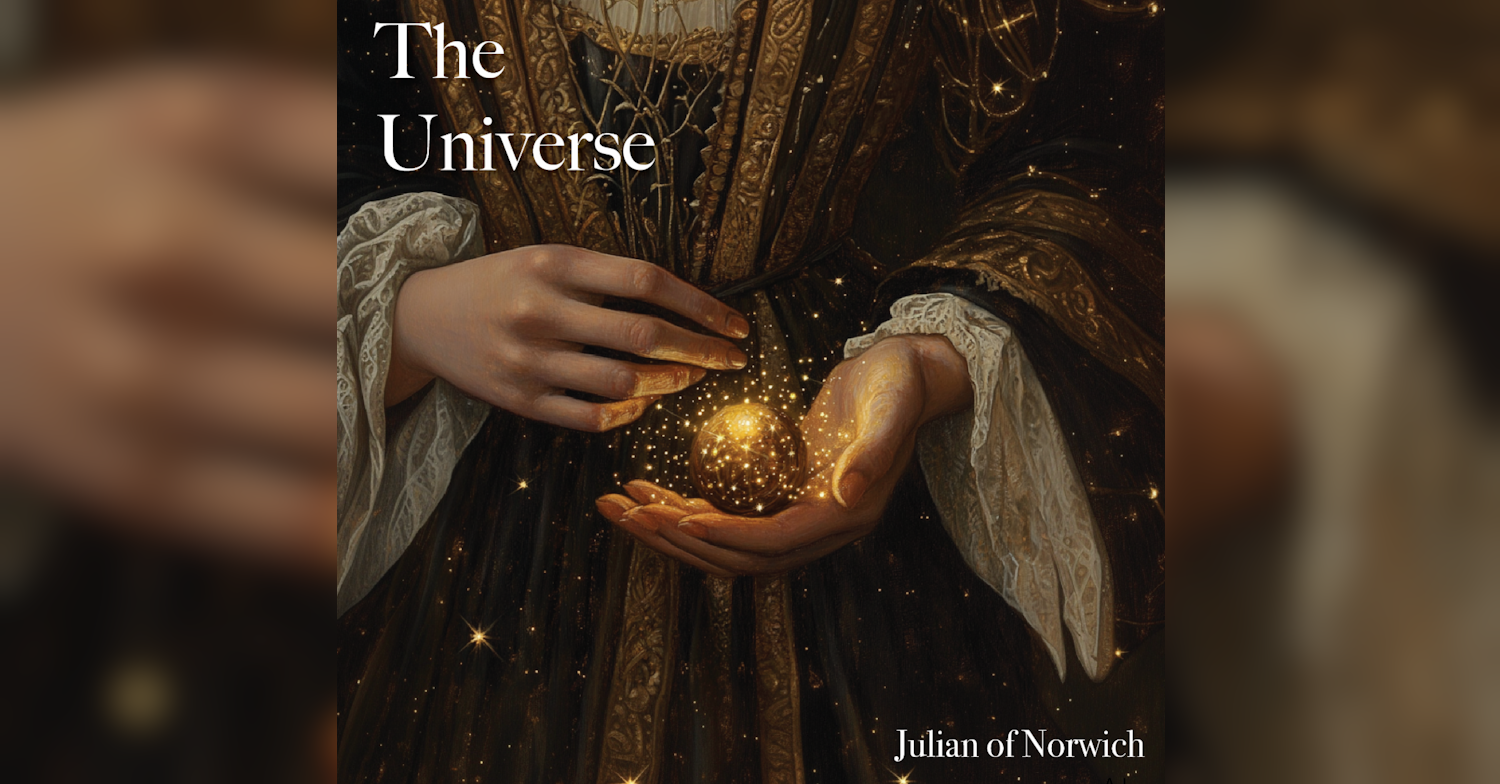
On May 8th, 1373, in the English city of Norwich, a thirty year old woman was lying in bed, apparently dying, when she had a series of visions of Christ on the cross, right in front of her, in her room. Over three days, in high fever and pain, she received messages from Christ and insights which she spent years writing down in a long and short form. These years were spent as an anchorite - a kind of medieval hermit whose cell was physically attached to a church. The church’s name was St Julian’s of Norwich. Her name was derived from the church, so history knows her as Julian of Norwich. Her accounts are believed to be the first writings of any woman in English to be preserved. They are also extraordinary, and often, like today’s reading, deeply beautiful.
“Our Lord showed me a spiritual vision of his familiar love. I saw that for us he is everything that is good and comforting and helpful. He is our clothing, wrapping and enveloping us for love, embracing us and guiding us in all things, hanging about us in tender love, so that he can never leave us. And so in this vision, as I understand it, I saw truly that he is everything that is good for us.
And in this vision he showed me a little thing, the size of a hazelnut, lying in the palm of my hand, and to my mind’s eye it was as round as any ball. I looked at it and thought, what can this be? And the answer came to me “it is all that is made.” I wondered how it could last, for it was so small I thought it might suddenly disappear. And the answer in my mind was, “it lasts and will last forever because God loves it; and in the same way everything exists through the love of God.”
In the Middle Ages, Christ was seen as the king of the universe, but also as a harsh judge. It was Christ who would judge the living and the dead at the end of time. So, for many, Christ was both a figure of compassion, but also one to be feared. But in Julian’s visions, Christ appears as utterly nurturing to all human beings, indeed, all beings and the entire universe. This divine love is not conditional, but immanent, suffusing every created thing, sustaining all every moment. The tragedy of human life is that much of the time we do not experience this omnipresence of God’s love. Julian wanted her visions to be shared so everyone could know of Christ’s expansive love, and led to his willing sacrifice on the cross. Julian is told that Jesus would willingly go on the cross over and over again for every single human being if that is what it would take to turn us around to God. Peace.
-Rev. Stephen Milton, Lawrence Park Community Church, Toronto
Source: Julian of Norwich, “Revelations of Divine Love,” The Short Text, 4.
Note: if you have missed any the posts, they can now all be found on our website, updated daily:
https://www.lawrenceparkchurch.ca/blog
If you would like to subscribe to this series, please contact stephen@lawrenceparkchurch.ca

%20(4).png)